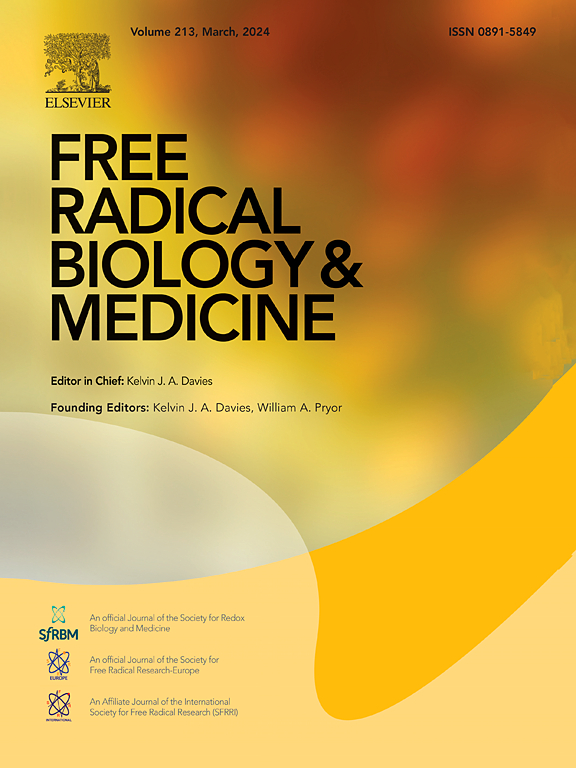The therapeutic potential of recombinant ANGPTL4 in Parkinson's disease: Evidence from in vivo and in vitro studies
IF 7.1
2区 生物学
Q1 BIOCHEMISTRY & MOLECULAR BIOLOGY
引用次数: 0
Abstract
Background
The established body of knowledge attests to the pivotal influence of ANGPTL4 on lipid metabolism and vascular biology. Nevertheless, its potential implication in neurodegenerative disease remains to be fully characterized.
Methods
The present investigation delves into the involvement of ANGPTL4 in the pathological progression of PD, both in vitro and in vivo. PD models were induced by intraperitoneal administration of MPTP and LPS in WT and ANGPTL4−/− mice. Additionally, rANGPTL4 was administered intravenously via the tail. Primary microglia cells cultured from the SNpc and Str regions of brains were exposed to LPS to induce neuroinflammation.
Results
The observations unveiled that ANGPTL4 deficiency exacerbated behavioral aberrations, intensified dopaminergic neuron loss, and stimulated microglial activation along with p21-dependent senescence. There was an elevation in the expression of proinflammatory cytokines in the PD model. Furthermore, the administration of rANGPTL4 protein reversed the observed phenotypes in ANGPTL4−/− mice, a phenomenon further validated in LPS-induced cells. Clinical specimens also manifested diminished levels of ANGPTL4 expression in PD patients. ANGPTL4 demonstrated the ability to alleviate neuroinflammation by suppressing EIF2-JNK-mediated ER stress and eliminating senescent cells.
Conclusion
Our findings posit a salutary role for ANGPTL4 in counteracting PD, rendering it a prospective therapeutic target for the development of innovative drugs aimed at treating neuroinflammation-associated neurological diseases, including PD.

重组ANGPTL4治疗帕金森病的潜力:来自体内和体外研究的证据
背景:已有的知识证明了ANGPTL4对脂质代谢和血管生物学的关键影响。然而,其在神经退行性疾病中的潜在意义仍有待充分研究。方法:本研究从体内和体外两方面探讨ANGPTL4在PD病理进展中的作用。在WT和ANGPTL4-/-小鼠腹腔注射MPTP和LPS诱导PD模型。此外,rANGPTL4经尾静脉给药。从大脑SNpc区和Str区培养的原代小胶质细胞暴露于LPS诱导神经炎症。结果:观察发现,ANGPTL4缺失加剧了行为异常,加剧了多巴胺能神经元的丧失,刺激了小胶质细胞的激活,并伴随p21依赖性衰老。在PD模型中,促炎细胞因子的表达升高。此外,给药rANGPTL4蛋白逆转了ANGPTL4-/-小鼠中观察到的表型,这一现象在lps诱导的细胞中得到了进一步验证。临床标本也显示PD患者ANGPTL4表达水平降低。ANGPTL4能够通过抑制eif2 - jnk介导的内质网应激和消除衰老细胞来缓解神经炎症。结论:我们的研究结果表明,ANGPTL4在对抗PD中具有有益的作用,使其成为开发用于治疗神经炎症相关神经系统疾病(包括PD)的创新药物的前瞻性治疗靶点。
本文章由计算机程序翻译,如有差异,请以英文原文为准。
求助全文
约1分钟内获得全文
求助全文
来源期刊

Free Radical Biology and Medicine
医学-内分泌学与代谢
CiteScore
14.00
自引率
4.10%
发文量
850
审稿时长
22 days
期刊介绍:
Free Radical Biology and Medicine is a leading journal in the field of redox biology, which is the study of the role of reactive oxygen species (ROS) and other oxidizing agents in biological systems. The journal serves as a premier forum for publishing innovative and groundbreaking research that explores the redox biology of health and disease, covering a wide range of topics and disciplines. Free Radical Biology and Medicine also commissions Special Issues that highlight recent advances in both basic and clinical research, with a particular emphasis on the mechanisms underlying altered metabolism and redox signaling. These Special Issues aim to provide a focused platform for the latest research in the field, fostering collaboration and knowledge exchange among researchers and clinicians.
 求助内容:
求助内容: 应助结果提醒方式:
应助结果提醒方式:


